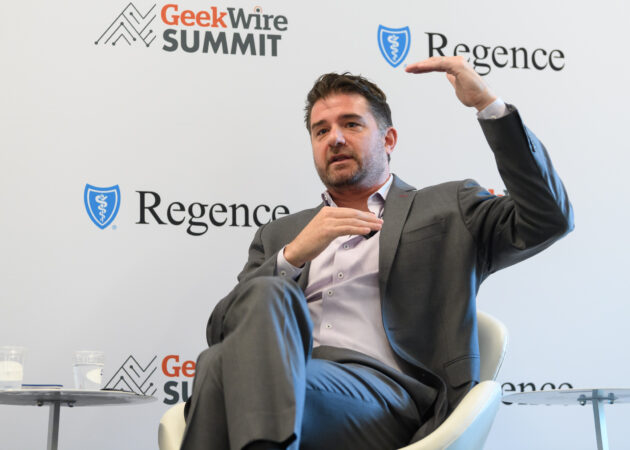
With revenues declining and net losses increasing, Seattle-based Adaptive Biotechnologies on Thursday said it hired Goldman Sachs to help conduct a review of strategic alternatives for its Minimal Residual Disease (MRD) and Immune Medicine businesses.
“All options are on the table right now,” said Adaptive CEO Chad Robins, when asked during a conference call with analysts whether both business units could be sold. He declined to comment further on specific merger and acquisition discussions.
Robins said that its more mature MRD technology — which is designed to detect minimal residual disease in bone marrow from leukemia and other cancer patients — differs from its Immune Medicine business. Those differences are driving the review. Robins said they’ve been talking for the past 18 months about their two distinct business opportunities.
He said the businesses are at different stages of maturity, with different capital and development needs. The Immune Medicine business is a traditional biotech business, which takes more time to develop, with revenue not being the primary driver at the moment. It is more about data and going through key clinical trials, he said.
The reason for the review, Robins said, is to have dedicated focus on each of the businesses since a “competition for resources” has arisen in the company between the two units.
“It has become increasingly clear where each business is, and it is really the natural point to look at a separation as MRD has now kind of achieved that scale,” he said. “At the same time we have had what we consider a really nice breakthrough discovery in our platform in MS (multiple sclerosis) that we think is going to apply to multiple other auto-immune disorders.”
Adaptive spun out of the Fred Hutch Cancer Research Center in 2009. The company laid off 12% of its workforce last year. Its chief medical officer and chief operating officer also left the company in the past 20 months.
In addition to the strategic review of its MRD and Immune Medicine businesses, Robins told analysts that the company is looking to reduce its real estate footprint by offloading one of its buildings.
In 2021, Adaptive opened its new 100,086 square-foot headquarters building in Seattle’s South Lake Union neighborhood, with a ribbon-cutting ceremony that included Gov. Jay Inslee. At the time, the new offices doubled the company’s office footprint for a workforce that stood at 782 people.
Adaptive reported third quarter revenue of $37.9 million, down 21% compared to the same period last year. Immune Medicine accounted for $13.3 million in revenue, down 52%. Meanwhile, MRD revenue was $24.7 million for the quarter, up 24%.
Adaptive’s net loss came in at $50.3 million, compared to $45.3 million in the same period last year.
The company’s stock dipped nearly 5% today.

